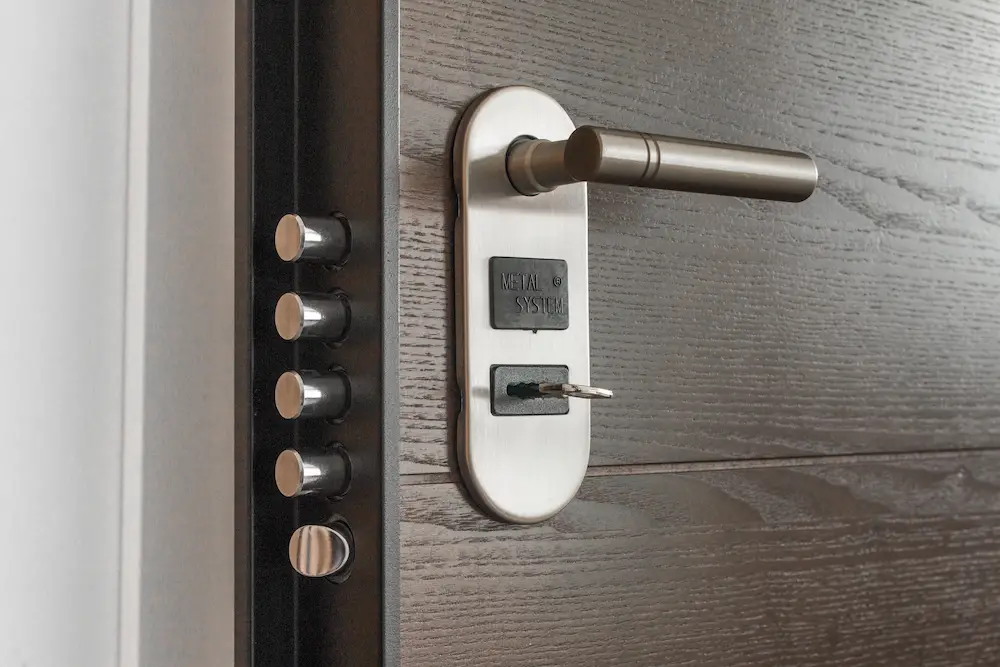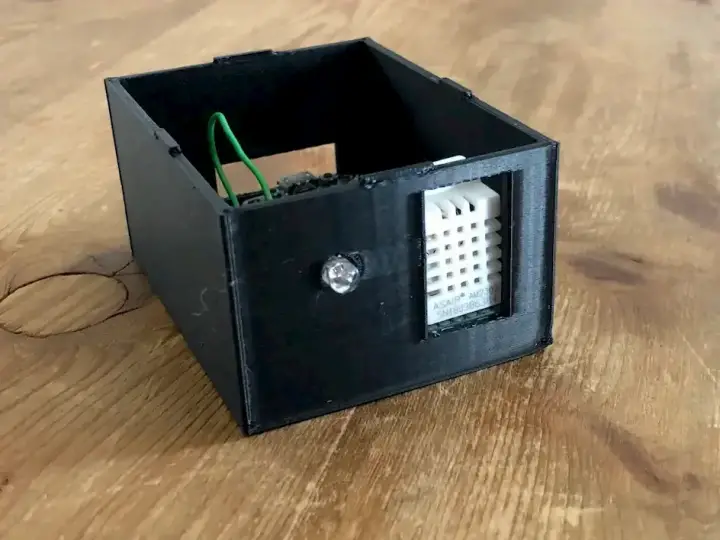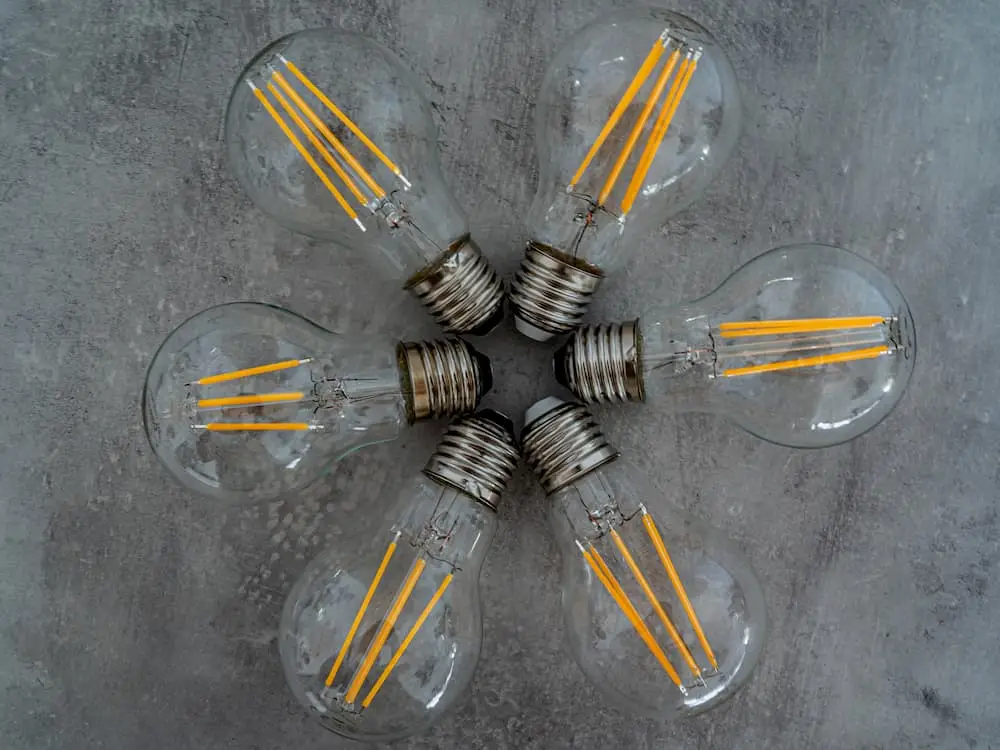Should You use Smart Home Access Control?
Updated on 31st Aug 2020 20:28 in IoT, Smart
Smart homes allow all sorts of devices to be remotely controlled from timers, apps, and even other devices! One type of device that gets talked about less is smart home access control - things like door handles, deadbolts, or even non-intrusive designs. There are three basic types of commercially available smart locks, and we're going to go into each one to see what benefits they offer compared to other options.

One common concern about these connected locking systems are their security - and for a good reason, there are many posts online discussing the many times these devices have been hacked or compromised in some way. However, the fact that some systems have shown that they aren't totally secure doesn't mean that the technology shouldn't be trusted, and that's why we're also going to talk about the ways you can minimize your risk to these problems.
Table of Contents
Types of smart locks
Deadbolt lock
Perhaps the most common smart lock is the deadbolt. These are the ones that fit into the spot above where the doorknob or handle is. Depending on your location, these may be either the standard or relatively uncommon - but one thing is sure: deadbolts are really great. They are a lot more secure than merely securing the door using a knob lock, which prevents the handle from turning while the door is locked.
They function by putting a metal "bolt" between the door and the frame, which is then physically pulled into the door when it unlocks and gets pushed back into the frame when it's locked. This makes it a lot harder to open the door by putting something between the door and its structure, resulting in a more secure door.
Models often include both a keypad and a regular keyhole, allowing multiple ways to operate the lock which can be an excellent way to have peace of mind that you can still get into your house should something go wrong. The one downside to this kind of device is that it's designed for exterior doors that have deadbolts. This means that it isn't going to help with securing an interior door such as an office or a utility room. Luckily for those, we have a different kind of lock available.
Lever lock
These are a decent solution for lower security areas that can't use a deadbolt or are interior doors that usually use a handle. These can also be installed on exterior doors, but it is not recommended as they are not nearly as secure as a deadbolt. As with the deadbolts, many also come with keypads and keyholes - again allowing them to have a backup in the occasion something should go wrong with the smart system.
One point that should be noted when it comes to lever-style locks is their price. In many cases, they are quite a bit more expensive than the deadbolt version of the same device. There is an intuitive reason for this though in that there are a lot more parts involved when compared to a deadbolt which will definitely increase the cost to produce the product.
Cover style lock
A cover lock sounds like something strange, but they are actually a very nice solution for a lot of people. These are the devices that allow installation over an existing deadbolt which is perfect for people living in a place that they don't own or have permission to modify. Anyone looking to have smart access control in an apartment will want to take a look at these.
Most of these locks operate by having a motor that physically turns the little wheel on the inside of exterior doors just as you would when working them normally. Just like the other devices, they can be used manually without the smart functionality by simply inserting the key into the lock. However, they typically don't include a keypad, meaning that if you require the use of a passcode, these won't be able to help you.
Smart lock technologies
As with other types of devices such as bulbs or plugs, smart locks have several communication technologies available to choose from. There exist locks that make use of WiFi, Zigbee, Z-Wave, Bluetooth, and while there may exist additional types, these are the most popular. If you've been on this blog before, you might know that I don't really like technologies that aren't WiFi because of the additional cost they have as a result of things like licensing or special hubs.
Locks might be the most significant exception as they directly affect the safety of your home. With so many hacking scares, it isn't surprising that installing a network-connected device to secure a property can be cause for concern. This is the primary reason that for safety and security-related applications, it is best to seek out more expensive, better-designed systems.
WiFi
Depending on your technical skills, your WiFi network might not be that secure. In fact, the security that most home networks rely on, WPA2, has been compromised via the KRACK method. This effectively means that someone determined enough can use such an approach to decrypt the traffic being sent between a device and your WiFi router/access point. This can be used to obtain credit card numbers, passwords, and all sorts of personal information but most relevant to us here, it can be used to inject and manipulate data.
As such, if you can't trust the network to be carrying real data - like you sending a command to unlock the door - how can you possibly trust that only authorized users can open the door? You can't. This is why I recommend using a technology such as Z-Wave, as the most recent edition (Z-Wave plus) makes use of AES 128 bit encryption that does not rely on a preshared secret (such as the WiFi password).
Bluetooth
Other than the apparent fact that Bluetooth has a rather short range, some of the most concerning news involving smart door locks has been about these devices. Most of the systems designed to use Bluetooth are expecting users to unlock the door with their phone while they are stood right in front of it, meaning anyone who wants to manage the state of the lock from a distance will be out of luck.
Furthermore, they actually have a terrible reputation for being hacked. Check out these slides from a conference where they demonstrate the technique behind getting into these devices. As Bluetooth is not exclusive to smart homes, there isn't any regulation on the protocol used to send commands to the lock. Since the apps are used on phones, they can be decompiled, meaning it's easy for any problems to be found by attackers.
Z-Wave & ZigBee
Both of these technologies are grouped together because they are similar when it comes to security. Generally, these are both more secure than the two previous options because their protocols specify that encryption is used. The sale of devices branded as either Z-Wave or Zigbee is licensed by their respective alliance, and so usually you can trust that a given product will be safe if it carries the logo.
Are smart locks safe then?
Even Z-Wave has it's shortcomings in the form of owners forgetting to enable the encryption feature or exploits at the time of device setup, so is it really safe to use a smart lock? In the end, this is a personal decision, but it's essential to have all of the facts.
While WiFi might be compromised, there's no promise the same won't happen to Z-Wave or some other technology, so it can be tempting to say that you shouldn't be buying these. However, it is important to perform a risk assessment, because while it is possible someone will hack your WiFi network and use it to gain access to your front door, the chance it happens is probably relatively low.
Again, only you can decide what your tolerance for this risk is. Still, I wouldn't use the WiFi devices because in that situation hacking just one thing would imply gaining access to everything. Conversely, using Z-Wave for access control can provide an extra layer of safety by being a different network that would-be intruders need to break to get in.
A note on physical security
One important note is that we've mostly talked about the software side of the security discussion. There is a lot to be said about the physical strength of a device, and I recommend you do some research on the ratings available before making a purchase. Many regular locks are vulnerable to physical attacks, and smart locks are no different.
There are various ways to check for physical safety, but depending on your country, the exact name of the rating will differ. One way to increase the odds of getting a reliable product is to buy from reputable brands and to opt to spend a bit more money for a more premium model.
Summary
Smart locks are fantastic and can make forgetting your keys a problem of the past, among many other cool features. We saw some of the various types of locks available on the market and covered the advantages of each one. Finally, we noticed that smart locks can have security issues but that with some research and knowledge, you can find a device that will keep your home secure while offering all the benefits of a smart home.



